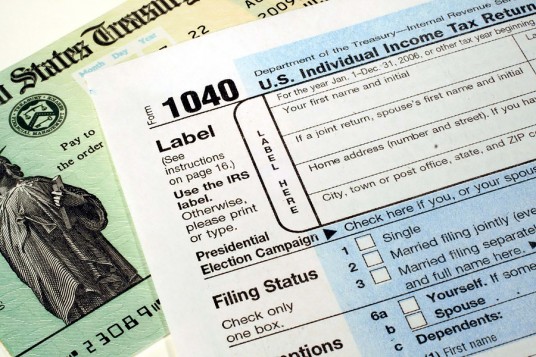 With the tax season officially in full swing, many of you are rushing to your computers or nearest tax office to get your tax filing in motion. This is especially the case for those that are expecting a refund. Unfortunately, this can make you a prime target for identity thieves and an open money schemes. So if you haven’t filed already and hopefully if you have you were skeptical and careful, there are several things that one needs to ensure when it comes to protecting both your identity and your refund.
With the tax season officially in full swing, many of you are rushing to your computers or nearest tax office to get your tax filing in motion. This is especially the case for those that are expecting a refund. Unfortunately, this can make you a prime target for identity thieves and an open money schemes. So if you haven’t filed already and hopefully if you have you were skeptical and careful, there are several things that one needs to ensure when it comes to protecting both your identity and your refund.
While the IRS has beefed up their efforts to protect taxpayers from identity theft, here are some things you need to do help keep your identity and money safe this tax season.
Guard your Social Security number. The IRS warns taxpayers not to carry their Social Security cards or any documents with their Social Security numbers or taxpayer identification numbers on them. And do not give out these numbers just because you’re asked. You will be required to provide your Social Security number in any situation that requires your identity to be verified (such as an application for credit or a license) or about which the IRS must be notified. Otherwise, be sure to ask whether the agency, business or organization has to have the number.
Monitor your mailbox. Make sure you receive all the W-2, 1099 and other tax forms you expect to get. If you fail to receive some, contact the company or financial institution that was supposed to send them to find out if and when they were mailed. If you suspect that any of these forms were stolen from your mailbox, contact the IRS Identity Protection Specialized Unit at 800-908-4490 extension 245.
Ignore e-mails from the IRS. The IRS doesn’t send taxpayers e-mails or text messages. So do not reply to e-mails or messages supposedly from the IRS, open any attachments (which could contain viruses) or click on any links (which could take you to a fraudulent site). Forward all suspect e-mails to phishing@irs.gov.
Be wary of people claiming to be IRS agents. Don’t reveal any personal information if someone calls and claims to be from the IRS. Instead, call the IRS at 1-800-829-1040 to see if an agent has a legitimate need to contact you.
Protect your refund. If you file your tax return by mail, use certified mail from the U.S. Postal Service to confirm that your return was received. And opt for direct deposit of tax refunds to avoid lost or stolen checks.
Store sensitive information in a secure place. Store paper tax forms in a locked home safe or safe-deposit box. Electronic forms should be stored on a password-protected or encrypted external drive or disk. Use strong passwords that include upper and lowercase characters, numbers and symbols. Never store tax files or any personal information on a cloud or Internet drive. And use a wiping application before getting rid of old computers that contain past tax information.
Be picky about your preparer. Many fraud rings front as tax-preparation companies and may offer to review returns for inaccuracies, but they can steal your information and redirect your refund, says Adam Levin, founder and chairman of Identity Theft 911. Also be wary of tax services that promise a bigger or faster refund.
Verify the status of a preparer’s license with the Better Business Bureau and IRS Office of Professional Responsibility. E-mail the IRS at opr@irs.gov with the full name of the individual or company and the address.
Before handing over personal information, ask the tax preparer how your information will be stored and what his or her privacy policy is. This will help you feel more secure and will alert a less-than-reputable preparer that you’re on the ball. Most important, scrutinize your prepared return and don’t sign it if it is incomplete or if the preparer has failed to sign it (paid preparers are required to sign your return and complete all preparer sections requesting their ID number). [Source]
All in all remember that there is only one you and your identity is the only one you get which makes it worth protecting. So be CAREFUL and not sorry!



